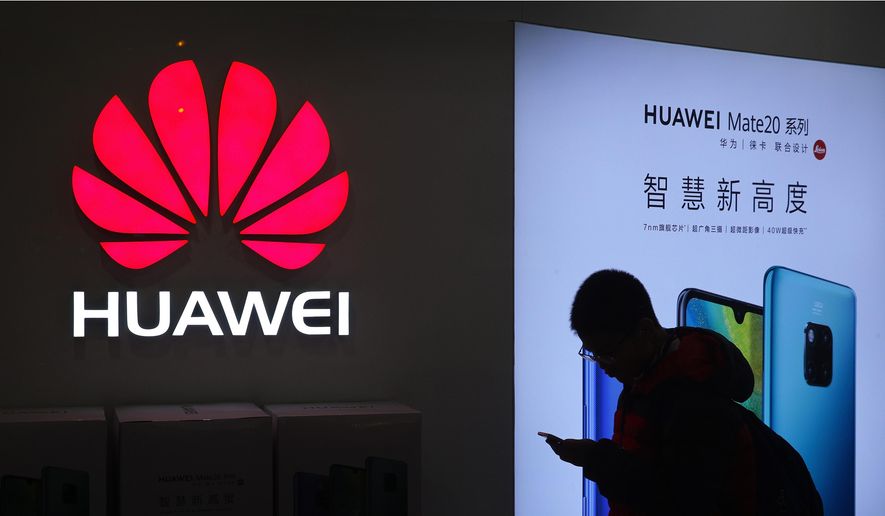President Trump on Tuesday signed a new law aimed at preventing China from penetrating American telecommunications networks for electronic spying and data collection.
The law calls for the formulation of a national strategy to protect next-generation 5G telecommunications equipment, amid fears Chinese firms have seized a commanding lead in the marketplace.
“The strategy will protect the American people from security threats to telecommunications networks and 5G technology,” Mr. Trump said in a signing statement.
The measure is the latest effort by the U.S. government to prevent Chinese telecommunications companies such as Huawei Technologies Ltd. and ZTE from entering the U.S. market. Officials fear China could use its equipment for spying and data collection through “back doors” in Huawei equipment.
In January, the president signed a law prohibiting telecom carriers from using U.S. subsidiaries to buy equipment from Huawei and ZTE. That law also called on the Federal Communications Commission to fund the removal of all Chinese telecommunications equipment from rural American providers — including some that service U.S. nuclear missile bases in the West.
The federal government is providing $1 billion to replace the Chinese equipment.
The bill signed Tuesday passed by the Senate this month and the House in January with bipartisan support.
The law requires “maximizing” security of 5G systems, infrastructure and software. The U.S. has been urging European and Asian allies — with mixed success — not to allow Huawei to help build their new national 5G networks.
American intelligence officials have said Huawei and other companies are required by Chinese law to provide Chinese intelligence services with access to their equipment. China has given Huawei a $100 billion line of credit to finance its global expansion.
Both Huawei and the Chinese government have denied the claims the company poses a security risk. Huawei is the largest telecommunications equipment manufacturer in the world, and its only major rivals are the European companies Ericsson and Nokia.
In May, Mr. Trump targeted Huawei with an executive order and Commerce Department export controls. The new law does not call for nationalizing the 5G infrastructure or systems, a proposal contemplated by the White House shortly after Mr. Trump took office.
Some security experts say government intervention is the only way to prevent China from cornering the market on 5G systems, given the company’s price competitiveness and backing from the government in Beijing. Huawei also has deep relationships with countries around the world from its work on the previous 4G telecommunications networks.
“I’m very concerned about Huawei and other Chinese technologies,” Defense Secretary Mark Esper said in congressional testimony earlier this month. “I think we need to take a very careful eye with regard to our export controls — Chinese technology in general, Huawei specifically — and I think we need to be very conscious of Chinese technology in our system.”
But there has been reported Pentagon opposition to the Commerce Department regulations restricting Chinese equipment purchases.
“I need to balance the equation and to make sure we understand our own technology companies, ensuring that we have access to that as well,” Mr. Esper told lawmakers.
Huawei sued the U.S. government for banning its products under a 2019 defense authorization law that prohibits the federal government from doing any business with Huawei, ZTE or any vendors tied to the Chinese. A federal judge in Texas last month ruled against Huawei’s challenge to that law.
Retired Air Force Brig. Gen. Robert Spalding, a former White House National Security Council official, warned in a January 2018 memorandum that the United States was losing the 5G race to China and that the technology will a major battleground for U.S.-China competition.
Gen. Spalding called for a joint U.S. government-private “moonshot” effort to build a 5G system in three years.
“You have to look at 5G as part of a longer-term campaign for Chinese dominance of information technology and command, control, communications and intelligence, surveillance and reconnaissance against the free world,” he said.
But the general said the new legislation signed by Mr. Trump on Tuesday does not have much that is new.
“We will have to see how it is implemented,” he said.
• Bill Gertz can be reached at bgertz@washingtontimes.com.




Please read our comment policy before commenting.